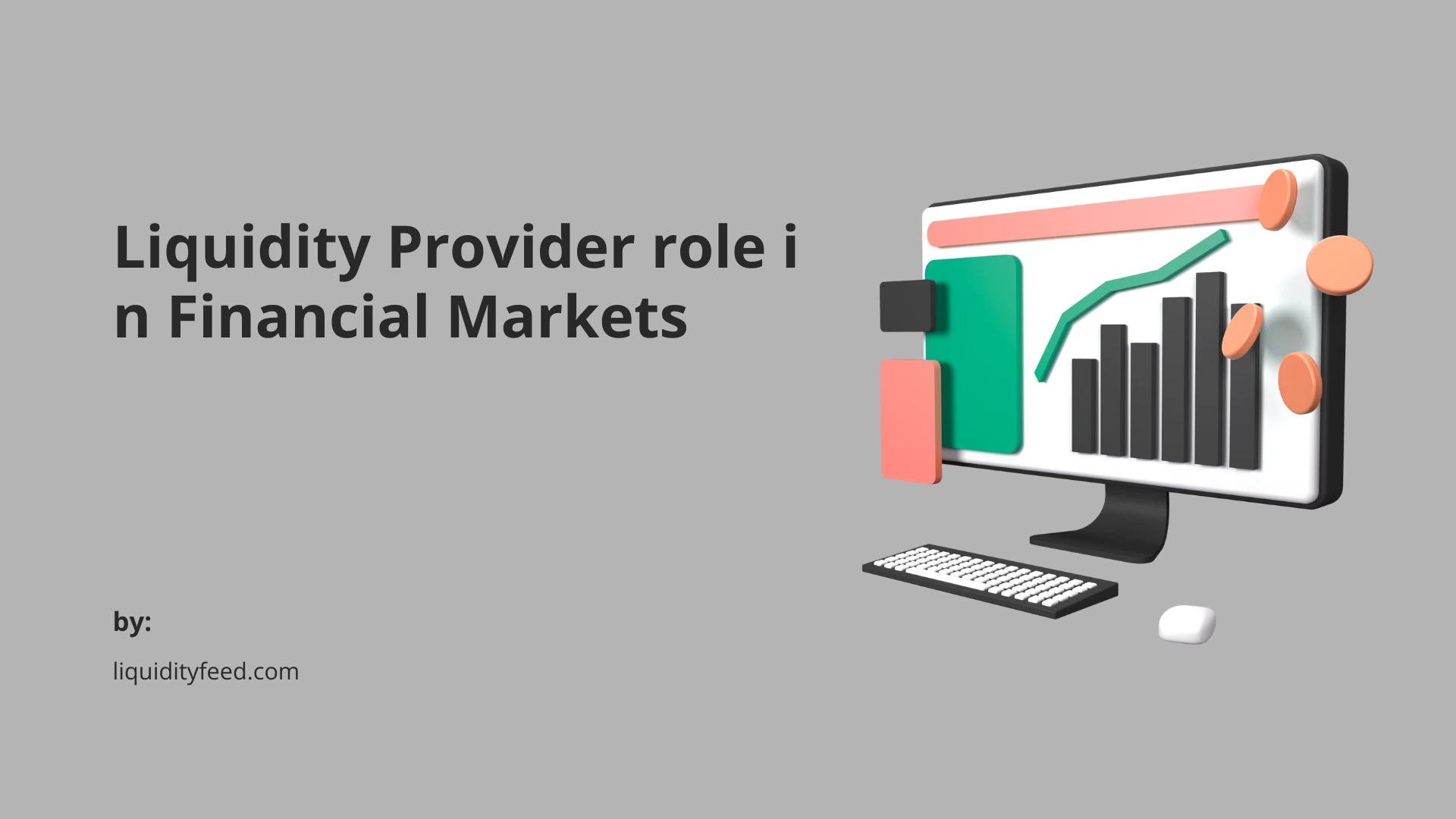What is a Liquidity Provider?
A liquidity provider (LP) is a financial institution, bank, or trading firm that ensures smooth market operations by continuously offering buy and sell orders for assets like stocks, forex, commodities, and cryptocurrencies. By maintaining a liquid market, LPs reduce price volatility, tighten bid-ask spreads, and enable faster trade execution for investors and institutions.
Why Liquidity Providers Matter
- Prevent market inefficiency – Without LPs, trading would slow down, and prices could swing drastically.
- Lower transaction costs – Tighter spreads mean better pricing for traders.
- Support large orders – Institutions rely on LPs to execute big trades without moving markets.
- Stabilize markets – Especially crucial during high volatility or economic crises.
Types of Liquidity Providers
1. Tier 1 Liquidity Providers (Major Banks & Institutions)
These are the largest players, such as JPMorgan, Goldman Sachs, and Citibank, offering deep liquidity in forex, equities, and derivatives. They dominate the interbank market and serve brokers, hedge funds, and institutional traders.
2. Market Makers
Firms like Virtu Financial, and Citadel Securities continuously quote bid/ask prices to ensure assets can always be traded. They profit from the spread while keeping markets fluid.
3. High-Frequency Trading (HFT) Firms
Using algorithms, HFT firms (e.g., Jump Trading, DRW) execute thousands of trades per second, capturing tiny price differences and adding liquidity.
4. Institutional Investors & Hedge Funds
While not traditional LPs, large funds like BlackRock and Bridgewater indirectly provide liquidity by actively trading in massive volumes.
5. Crypto Liquidity Providers
Specialized firms (e.g., Wintermute, GSR) ensure smooth trading in Bitcoin, Ethereum, and altcoins by maintaining order books on exchanges like Binance and Coinbase.
How Liquidity Providers Work
LPs operate by:
✔ Quoting bid/ask prices – Always offering to buy and sell assets.
✔ Absorbing large orders – Breaking big trades into smaller ones to prevent slippage.
✔ Earning from spreads – Profiting on the difference between buy and sell prices.
✔ Providing credit & financing – Helping brokers and institutions access capital.
Liquidity Providers vs. Market Makers
| Feature | Liquidity Provider | Market Maker |
|---|---|---|
| Scope | Broad (forex, stocks, crypto) | Narrow (specific assets) |
| Clients | Banks, brokers, institutions | Retail brokers, exchanges |
| Pricing Power | Sets interbank rates | Follows LP prices |
| Example | JPMorgan in forex | Prime of Prime LPs for retail traders |
The Role of LPs in Different Markets
1. Forex Liquidity Providers
Major banks and ECNs (Electronic Communication Networks) ensure tight spreads in currency pairs like EUR/USD, GBP/USD.
2. Stock & ETF Liquidity
Market makers like Citadel Securities ensure smooth trading on NASDAQ and NYSE.
3. Crypto Liquidity Providers
Key for exchanges to prevent illiquid order books and high slippage.
4. Commodities & Derivatives
LPs facilitate hedging for farmers, oil producers, and institutional traders.
How to Choose the Best Liquidity Provider
When selecting an LP, consider:
✅ Depth of liquidity – Can they handle large orders?
✅ Tight spreads – Lower costs for traders.
✅ Execution speed – Critical for HFT and algo trading.
✅ Regulatory compliance – Trustworthy LPs are regulated (e.g., FCA, SEC).
✅ Asset coverage – Do they support forex, stocks, crypto, etc.?
Top Liquidity Providers in 2025
- Finxsol – Leading Consulting Firm to connect you to LPs for forex, commodities, and institutional trading as well as Forex Broker White label Solution, CRM and acquiring Forex Brokerage Licenses
- JP Morgan – Dominates interbank forex liquidity.
- Citadel Securities – Major player in equities and ETFs.
- Wintermute – Top crypto liquidity provider.
FAQs on Liquidity Providers
1. Do Liquidity Providers Manipulate Markets?
No—reputable LPs follow strict regulations. However, some high-frequency traders may engage in controversial strategies like spoofing.
2. How Do LPs Make Money?
Primarily through the bid-ask spread, but some also charge fees for order flow.
3. Can Retail Traders Access Liquidity Providers?
Yes, through brokers that aggregate LP liquidity (e.g., Interactive Brokers, Pepperstone).
4. What Happens if Liquidity Dries Up?
Markets become volatile, spreads widen, and execution slows—seen during flash crashes or economic crises.
Final Thoughts
Liquidity providers are the backbone of financial markets, ensuring stability, efficiency, and lower trading costs. Whether you’re a retail trader, hedge fund, or broker, understanding LPs helps optimize execution and reduce risks.
Need a Reliable Liquidity Provider?
Liquidity Feed Connects you with Various liquidity providers across forex, Crypto, commodities, equities, indices, Precious Metals, Commodities, Energies, ETFs, NDFS with tight spreads and fast execution. Contact us today to learn more.





